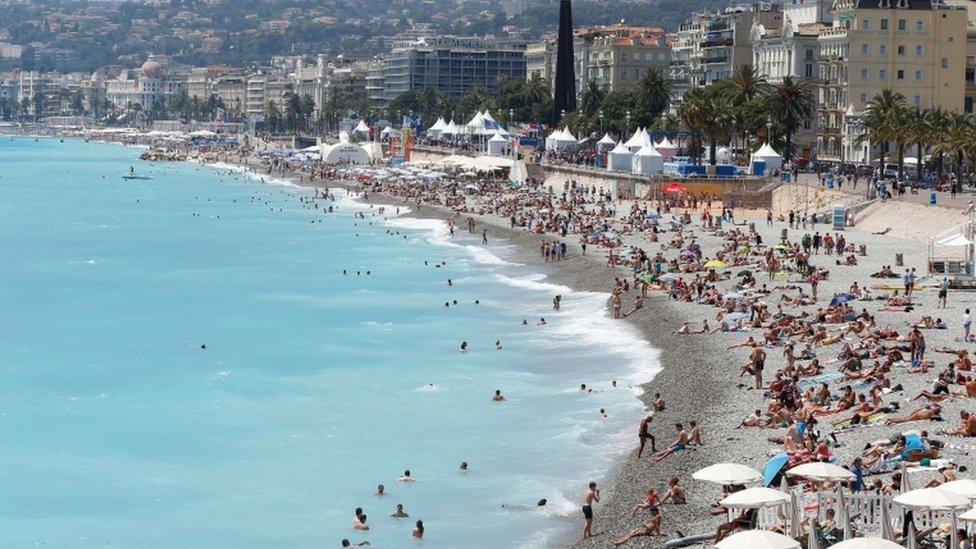Term-time holiday court win prompts councils to drop cases
- Published

Holiday prices rocket during the school holidays
Some local councils in England have dropped court cases against parents over term-time holidays following a recent court victory by one father.
Jon Platt had refused to pay a fine after taking his daughter on a family holiday during term time.
A BBC investigation gathered details on the impact of the case from more than half of England's councils.
Ten councils had dropped cases, six had suspended issuing fines and 11 were reviewing their policies.
'Clear rules'
More than 80 local councils provided information to the BBC following Mr Platt's victory in the High Court in May.
Forty-nine of them said they were not changing any of their procedures and a handful responded but only to say they would not comment.
The court ruled that Mr Platt was not liable to pay absence fines to Isle of Wight Council because his daughter had a good attendance record.
But the council has since been told it can apply to challenge the decision.
A Department for Education spokesman said: "The rules are perfectly clear - children should not be taken out of school without good reason.
"That is why we have tightened the rules and are supporting schools and local authorities to use their powers to tackle unauthorised absence.
'Disrupted lessons'
"The evidence shows that every extra day of school missed can affect a pupil's chances of achieving good GCSEs, which has a lasting effect on their life chances - vindicating our strong stance on attendance.
"A child who is absent also impacts teachers, whose planning of lessons is disrupted by children missing large portions of teaching."
An appeal by Isle of Wight Council will be heard later this year.
The information on councils' responses comes after the DfE published statistics showing there were 151,125 penalty notices issued to parents in England for their children's term-time absence from school during 2014-15.
The figure represented a 54% increase compared with the previous year.
But the figures cover a period before Mr Platt's victory in the High Court.
- Published7 July 2016

- Published13 May 2016
